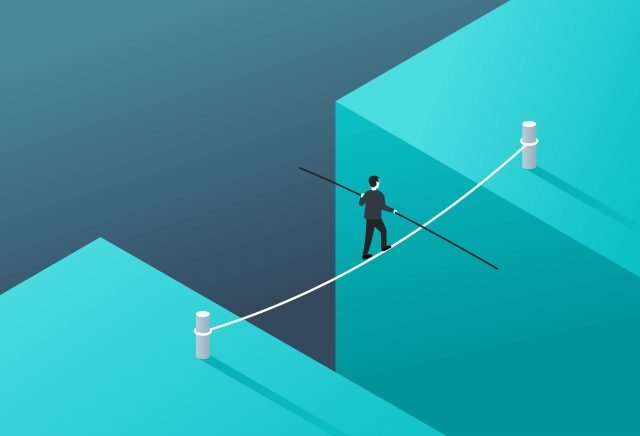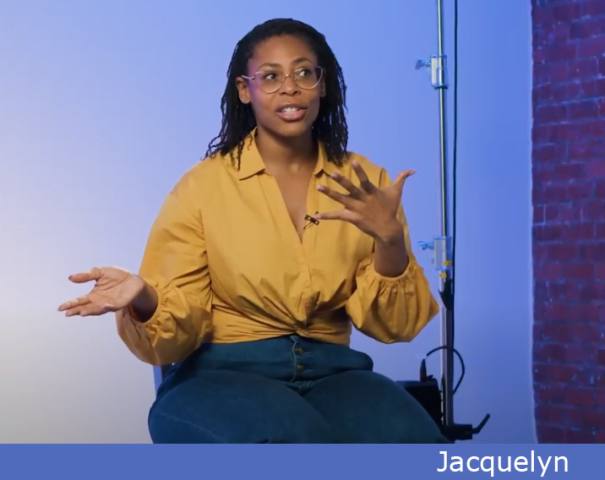Filter


Drop in Credit Score is Fallout from Older Partner’s Death
The negative financial consequences for individuals over age 50 who lose a partner are dramatic. A new study by Ohio State researchers found that the surviving partners see their credit scores drop by 10 points – a decline that persists for up to two years following the partner’s death. Further confirmation of the financial fallout is the rise in delinquencies on debt payments. If the late payments involve credit cards, which retirees frequently roll over to the next month, they can expose the fragility of the survivor’s finances. Anytime a spouse or partner dies, the survivor’s finances destabilize. The Social Security income coming into married households declines if the number of checks is reduced from two to one. Other researc…
April 9, 2024
National Retirement Plan Would Lift Low-income Saving
Virtually all high-income workers in this country are saving in some type of employer retirement plan. But only a minority in the lowest-income group are. A new study tackles this serious shortfall for disadvantaged workers in service, retail and other low-paying jobs. The crux of the problem, the researchers find, is that they lack easy access to a retirement savings plan at their jobs. This analysis, by establishing a direct connection between access to an employer-based plan and the act of saving, goes on to show that national legislation would greatly boost the financial security of low- and also middle-income workers by providing a retirement plan when, as is often the case, their employers do not. Automatically enrolling them would…
April 4, 2024
Delay Social Security? Not Everyone Can Do it
Financial advisers often encourage older workers to delay signing up for their Social Security as long as possible to maximize their monthly income. But several of our blog’s readers point out, rightly, that this isn’t always possible for people in physically taxing jobs. Blue-collar workers are in a real Catch-22, caught between the unforgiving financial demands of retiring and a body that can’t take any more work. “That’s me,” a reader named George L. commented on a recent blog, “The Psychology Behind Starting Social Security at 62.” Psychology had little to do with his decision to start Social Security. “I worked unskilled hard labor all my life so I was ready to retire at 62,” he said. Another reader,…
April 2, 2024
Rising Stocks, House Prices Boost US Retirement Outlook
While COVID was raging, the jump in house prices and a rising stock market were dramatically improving U.S. workers’ retirement finances. In 2022, the share of households that were not saving enough to maintain their standard of living after they retire dropped to 39 percent, from 47 percent in 2019, according to the Center for Retirement Research, which sponsors this blog. That 39 percent is the lowest level in the nearly two decades the center has been analyzing the data in the Federal Reserve Board’s Survey of Consumer Finances, which is conducted every three years. But the news is not quite as good as it appears, because the increase in house prices in 2020 through 2022, which continues today, was…
March 28, 2024
Bureaucracy, Paperwork Block Access to Government Aid
Seven million low-income Americans who would qualify for SNAP food stamps are not receiving them. And millions have fallen out of their state’s Medicaid coverage or Children’s Health Insurance Program since the federal guarantee of coverage during COVID expired last year. The bureaucratic hurdles, multiple-page applications, and layers of federal and state requirements cause many eligible people to give up on applying or, if they apply, to be rejected by government safety net programs for incomplete or improper applications. “It can feel like a full-time job getting on those programs and actually staying on them,” Pamela Herd, co-author of “Administrative Burden: Policy by Other Means,” said in this NewsHour video. Morgan Wingate, a single mother of three, said she could really us…
March 26, 2024
Nursing Homes Forced to Hire More Costly Outside Staff
COVID has wreaked havoc on the nursing home industry’s staffing. Prior to COVID, only one in five nursing homes had to hire some of their workers from outside agencies to fill in as caregivers for their patients. Today, nearly half are using agency staff, who are providing more and more hours of the direct care that these high-need patients require, according to research in the March issue of the journal Health Affairs. Hiring agency staff is more expensive than employing people in-house, and the growing use of them has created numerous problems for nursing homes and potentially their patients, who lose out when their caregivers are temporary workers unfamiliar with their needs. Staff shortages had already been an issue but…
March 21, 2024
In COVID Year 2, Older Workers Faced Tough Choices
The first year of the pandemic, a period of great uncertainty, was even more fraught for older workers, who were at higher risk of serious illness or death if they contracted the virus. The second year brought more uncertainty. Older Americans were embracing the new vaccine as variants of the virus continued to evolve. Unemployment, after spiking at nearly 15 percent the previous year, was coming back down. In September, the generous cash assistance approved in Congress that had kept many Americans afloat expired. Despite the job market recovery in Year 2 of COVID – April 2021 through March 2022 – new research finds that fewer older people were employed because many of them had decided to stop working or…
March 19, 2024
Homeownership in Retirement: an Asset or a Burden?
The conventional wisdom for older workers heading into retirement is that owning a house is a good thing. The property has no doubt appreciated over many years, adding to their wealth. But new research finds that homeowners often strain to a pay a mortgage that is larger than what they can realistically afford. The essence of the problem for retirees, who usually rely on savings to help with living expenses, is that many do not have enough to make their monthly payments comfortably. This problem has become more pressing over the years. Half of the retired homeowners who were born in the early years of the baby boom wave are still making mortgage payments. They are in a very different…
March 14, 2024
Caregivers Share their Stresses and Joys
Jacquelyn had finally snared her dream job as an assistant to a television writer in New York City. Riding the subway one Saturday night, she got a call that changed all that. Her mother, who was living with her grandmother, was in trouble back home. Jacquelyn returned to find rotting food in the refrigerator and a house on the brink of foreclosure for past due mortgage payments. Her mother had Alzheimer’s disease. Jacquelyn said she had to quit her job and never returned to New York. “Caregiving requires a restructuring of who you are,” she said. Undervalued, stressed, exhausted, guilty and even resentful – these are some of the feelings that unpaid caregivers, who are mostly women, experience on t…
March 12, 2024
Shrinking Social Security’s Racial Gap – but Only a Little
Consider the myriad reasons Black Americans get 19 percent less from Social Security during their retirement years than White retirees. Inequities in the labor market limit their job opportunities and earnings, which are the basis for determining how much they will get in their Social Security checks. Poorer health or the demands of caring for children or ill family members shortens careers and cuts into benefits. Smaller benefit checks are also a problem because Blacks are less likely to marry. The strain on single workers’ finances spills over into old age if they lacked a higher-earning spouse who would get a bigger Social Security check. Hispanics also get less – 14 percent less – for some of the same reasons,…
March 7, 2024
Saving for Retirement Can Mean Adding Some Debt Too
In today’s world, workers need to save if they want to be comfortable in retirement. But there are also limits to what many people can afford. A new study finds that when U.K. workers were automatically enrolled and started contributing to a retirement savings plan, their household debt – credit cards, bank overdrafts, and other unsecured loans – increased. For every 32 to 38 pounds (or $40-48) in combined monthly contributions by the employer and employee, their debt rose by just over 7 pounds (about $9). Stepping back to look at the big picture, this research also confirms the benefit of auto-enrollment: it encourages workers who might not otherwise have saved to get started. And the increase in unsecured debt,…
March 5, 2024
Surging U.S. Centenarian Population Requires Action
The growth in the over-100 population is gob-smacking. In 30 years, Pew reports that the number of U.S. centenarians will quadruple to more than 400,000. To get a sense of what this will mean, picture every resident in Tampa, Fla., being over 100. In 1950, only 2,300 people in the entire country were. Most centenarians today are women and will be in the future but men are also living longer. Men will make up about a third of them in 2054, up from a fifth currently, according to Pew. The rapid growth in the over-100 population is part of a larger trend of an aging nation, which creates three pressing policy concerns. First, all these old people are going to…















